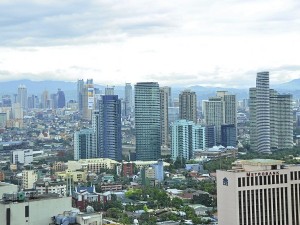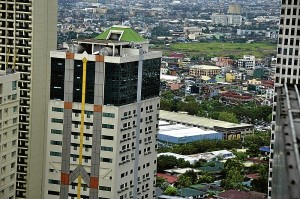
First in a series
Owning a piece of real estate such as a condominium unit has become a reachable dream for the multitude belonging to the working class. The healthy competition among developers has resulted in competitive pricing and more flexible payment schemes.
At a price range of P45,000 to P80,000 per square meter depending on the project location, a wider base of buyers are taking up units big and small near their places of work. The condominium business has become the darling of the local real estate industry.
But what’s on the flip side of this seemingly pretty picture of happy condo buyers and (even) happier developers? Inquirer Property has come across discerning readers and buyers who have had not-so-pleasant experiences of buying condominium units in the Philippines. Then, we asked property experts to either confirm or explain these experiences. Here are some surprising insights and revelations on the 8 most-ranted-about issues of buying condo units in the Philippines
1 Condos don’t come with the parking slots. One reader/buyer ranted: “Developers don’t provide units with their own parking slot. We have to buy a separate lot with a separate title just for parking.”
Architect Edilberto J. Morcilla did confirm that parking slots are not bundled with the condo unit most of the time. “It is an option for a client to buy or not. It has a separate title, thus, a separate acquisition cost. Many buyers would also opt not to have a parking slot. Designers therefore do not provide a one-to-one ratio for units and parking slots.”
National Real Estate Association chair Alejandro S. Mañalac agreed with this observation. “Most developers do provide parking slots, but yes you have to buy them separately. This gives the buyer a choice whether to get one or not. It is more practical than automatically offering the unit with parking (with the corresponding additional price, of course) and ‘forcing’ the clients to buy them even if they don’t have use for them, especially those who are just intending to lease out their units. But, as a piece of advice to condo buyers, it is really more practical to buy a parking slot. You may not have use for them but you can definitely easily lease them out.”
Enrique M. Soriano, Ateneo program director for real estate and senior adviser for Wong+Bernstein Business Advisory, explained that developers must balance parking provisions vis-à-vis various unit sizes, and usually priority slots are given to bigger sized units. The building code provides a certain ratio, sq m over parking, making a parking purchase not automatic and separate from the condo unit.
2 Lost deposits. “If you are in the process of buying a condo, you will go through all kinds of problems from (agents). You will lose your deposit if you don’t follow up all the time,” another buyer ranted.
Soriano confirmed this happening. “Agents come and go, however, buyers must also have the initiative to track their purchase and not be overly dependent on agents.”
Mañalac said, “If you buy from the wrong agent, you will experience this whether you are buying real estate, cars, insurance, etc. Some buyers also tell their agents that they will just buy through their friends or relatives who are not really into the property business but just to give them a favor. This messes up the whole thing. Also, if you buy from an agent, and you ask for all their commissions, why should you expect good service?”
Morcilla explained that condo projects, especially the fast-moving ones, follow strict deadlines when it comes to unit reservations. Buyers must be mindful of the deadlines to submit pertinent documents as other agents might be eyeing the same units for their own clients. Failure to submit needed documents can and will result to the forfeiture of reservation fees, because there is also what is called the “lost opportunity” for the developer.
3 Overseas Filipino workers are taken advantage of. “Overseas Filipino workers have more problems (when buying condo units in the Philippines) as they are being taken advantage of. Buyers lose their deposits and payments because of corruption in the system. Sometimes, the OFW isn’t aware that he or she has been paying for a unit owned by many other buyers or existing owners, and corrupt agents collect payments from all of them. If you’re not in the Philippines they take advantage of your absence. And there are just too many paper work which are so complicated,” an angry reader writes.
“Agree,” Soriano quipped, as he added, “And I empathize. Overseas buyers really go through the wringer. The key is to invest on reputable developers with a long history of delivering quality projects on time.”
Mañalac revealed, “It is true that there are other agents selling abroad. Some were officially sent by their companies to do roadshows, while some are there on their own. It is very important for our OFWs to be very careful in dealing with these agents since they will not be here to personally attend to their accounts.” He then urges OFWs to answer these important questions whenever they encounter agents offering condos in the Philippines:
Does the agent belong to a credible company with a good track record of delivering their projects with good quality and on time?
SOME EMPLOYEES would rather purchase a condo unit near their offices than buy a car and drive to work. Photo by Tessa R. Salazar
Is he or she an official representative of the company? It would be better if the developer has an official and legitimate office in that particular foreign country.
Are the agents quoting you the official prices and availability of the units? It would be better if their inventories and official computation templates were online.
Does the agent’s company maintain an online client portal where buyers can securely access their accounts anytime? This would be useful, especially when the agents are inaccessible or have left the company.
Mañalac said paperwork is necessary, whether they are buying properties here or abroad. Basically, though, this paperwork is really just part of a contract printed in several sets for buyer’s signatures, which makes it seem already voluminous for some. Expect additional paperwork when buyers avail of financing either through banks or a Pag-Ibig housing loan.
Morcilla said OFWs acquiring condo units can expect the process to be a “little more complicated,” more so if the overseas Filipino assigns a local representative not knowledgeable in such transactions.
“Being taken advantage of can happen in any business transaction. It is best that one must first solicit for a recommendation from relatives or friends for a more reliable developer, marketing firms or agents for that matter, before negotiating for a unit. Also, be cautious and discerning with your agent who might be ready to move heaven and earth just to close a sale. Most of all, if one is serious in buying a condo unit and after paying reservation fees, make sure to have the necessary documents delivered on time to avoid forfeiture as they are allowed to do so, for the reason given above,” Morcilla cautioned.
(Next: Rants 4 to 8—Multiple ownerships, association dues, geologic hazards, discounts and damaged units, and accountabilities in the event of a man-made disaster)


